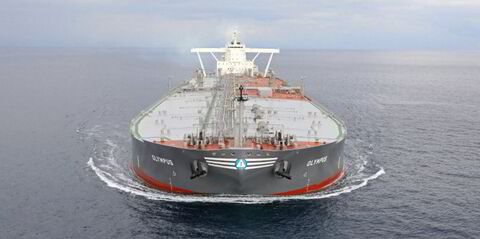The Maersk Mc-Kinney Moller Center for Zero Carbon Shipping has teamed up with Boston Consulting Group (BCG) to produce an environmental, social and governance (ESG) guide for shipping.
It will enable shipping companies to navigate the ESG landscape and develop future-proof strategies, they said, focusing on the needs of different segments of the industry.
The ESG Playbook for Shipping gives concrete recommendations on identifying areas to set targets and actions to implement practical initiatives and ensure organisational readiness.
The publicly available guide was piloted with Navigator Gas, which operates around 60 gas carriers globally.
ESG regulations are increasingly expected to become mandatory requirements for companies and will be important when they seek to raise capital.
Bo Cerup-Simonsen, chief executive of the decarbonisation centre, said ESG is a starting point for setting up transparent frameworks necessary for shipping’s transition to a zero-carbon future.
“A prerequisite for doing that in a robust way is to understand the systemic nature of the transition. We need to work with frameworks that take this perspective, and ESG helps us not jump to any conclusion that might solve one problem and generate other problems,” he told TradeWinds.
“Acting sustainably is increasingly becoming a licence to operate and we hope that by providing this guidance, we can make it easier for more shipping companies to develop and act on solid ESG strategies.”
The social dimension is extremely important, as is the environmental, which goes beyond climate change, Cerup-Simonsen added, and greater transparency will also track progress towards a more sustainable maritime sector.
A more diverse workforce, in terms of skills and nationalities, is part of that social element, according to Peter Jameson, partner and BCG’s global lead on maritime sustainability & decarbonisation.
“Those who do not act are leaving value on the table and will face mounting pressure from the entire shipping ecosystem, including customers and regulators, to act. We want to help companies get it right,” Jameson said, adding that applying the ESG Playbook creates opportunities rather than just ticking boxes.
Shipping has fallen behind other industries on ESG commitment. Those that have made progress are mainly large, global companies, representing only part of the world fleet.
Thousands of vessels, millions of seafarers and gigatonnes of CO2 are currently not covered by ESG ambitions. The guide can help smaller companies that lack the ESG expertise larger groups may build into their operations, the partners argue.
Navigator Gas chief executive Mads Peter Zacho said the playbook has been “key in developing a clear road map across initiatives and targets for the company”.
Companies looking for help with ESG can contact BCG or the Maersk Mc-Kinney Moller Center.
The centre put out 16 publications last year giving guidance on issues such as green corridors based on anonymised insights from many actors across the industry.





